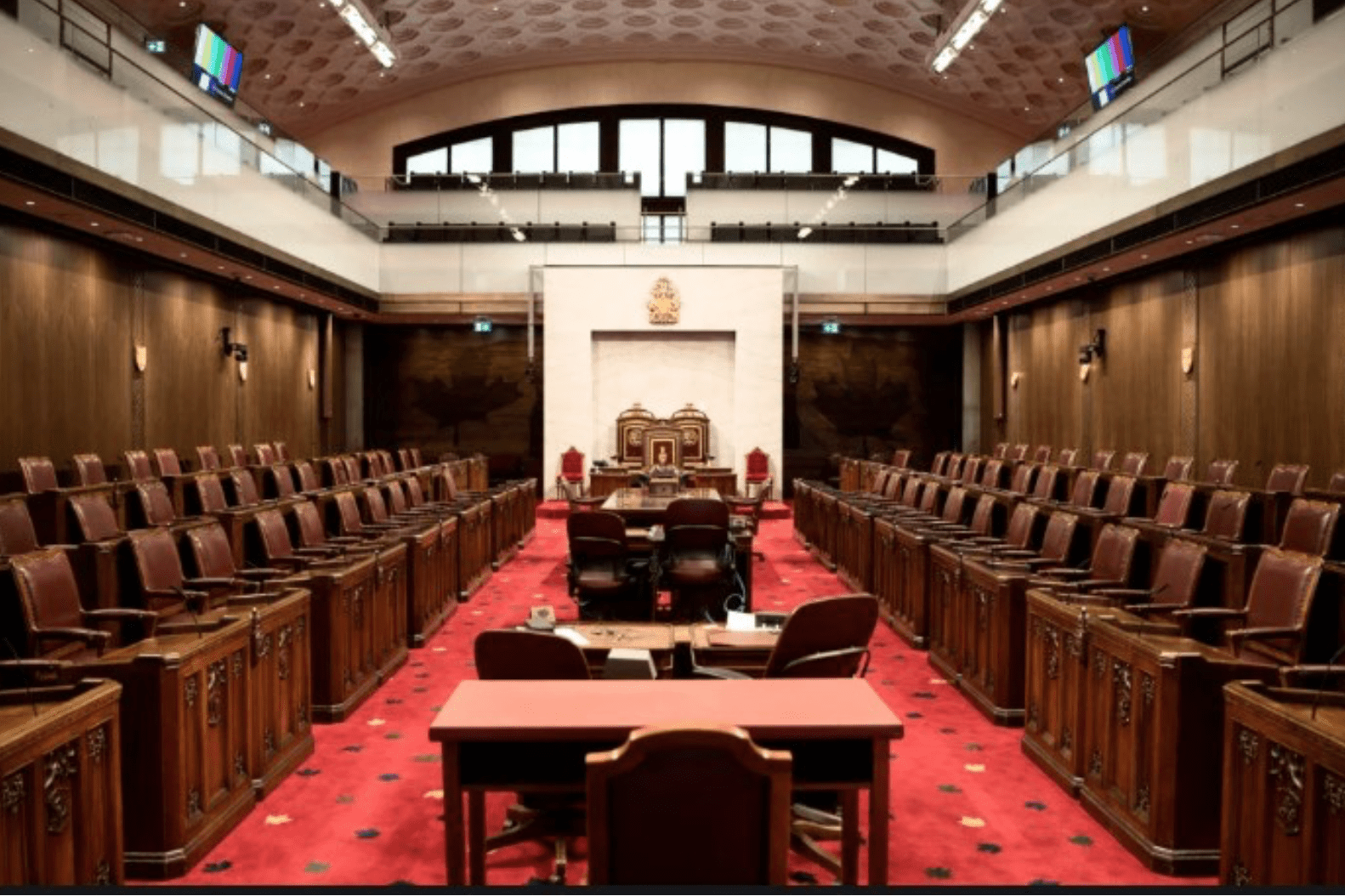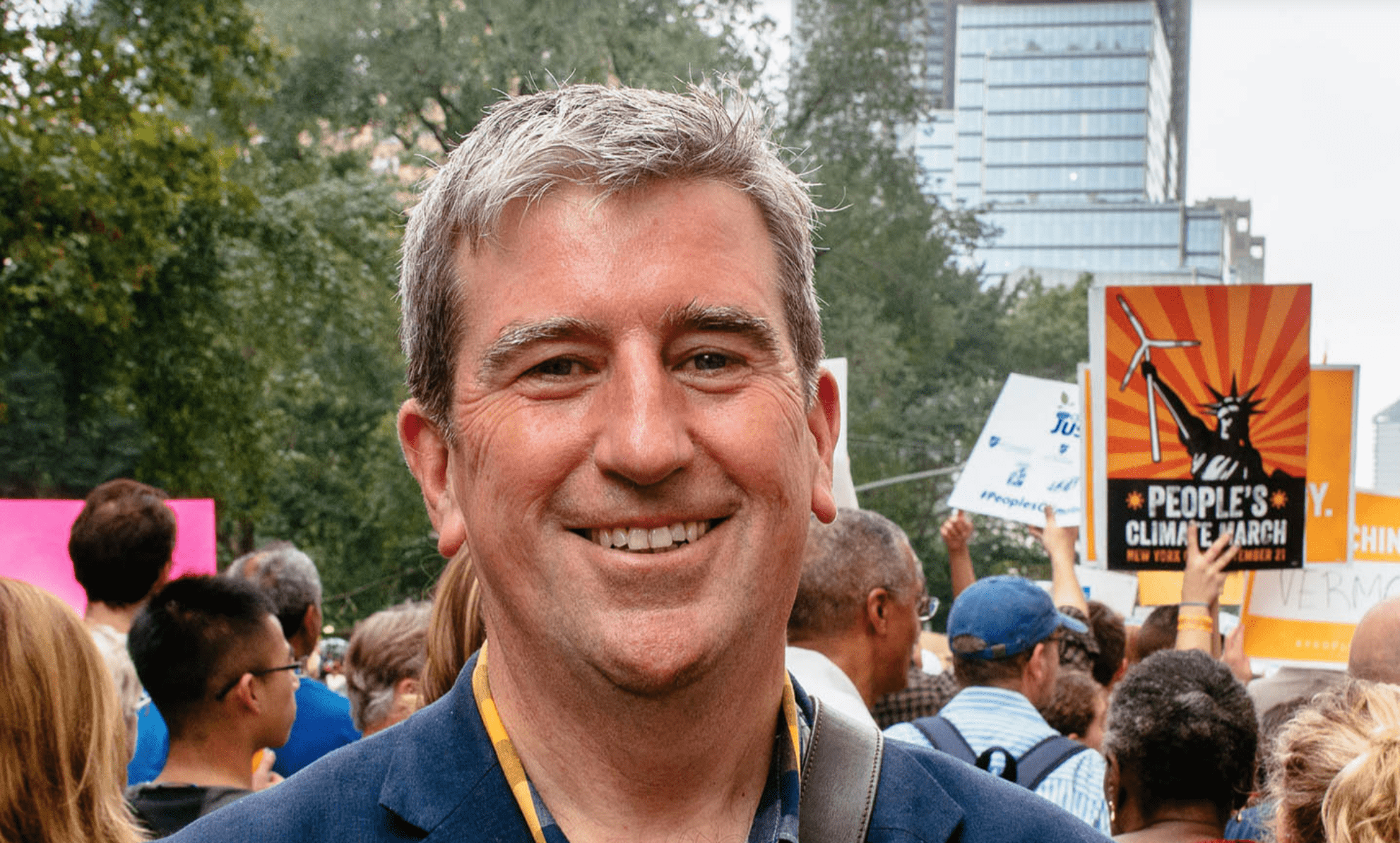Last week, the Alberta legislature passed Bill 26, the Senate Elections Act, which premier Jason Kenney crowed was part of the province's "democratic reform" agenda. It's one of a series of measures that Kenney has undertaken under the guise of "empowering the people" of the province, along with making provisions to hold additional referenda for non-constitutional matters, which claims to remove power from the government. The truth, however, is quite the opposite when governments give themselves the power to hold referenda, deciding complex questions as simple binaries where they can both determine the question and interpret the response as they see fit, it has the opposite power of actually removing democratic power from the people and centralizing it with the government. Senate "elections" are little different, because this has nothing to do with giving choice to Albertans, and everything to do with laying down a marker to fight with the current or future federal governments.
"I will send those names on to Ottawa, and the Prime Minister can decide whether or not he will respect Alberta democracy or disrespect Alberta democracy," Kenney declared in a Twitter video to proclaim passage of the bill, which tells you pretty much everything you need to know about why this is happening.
While Kenney and his supporters like to point out that previously "elected" Senators have been appointed by Brian Mulroney and Stephen Harper, those appointments happened before the 2014 reference decision by the Supreme Court of Canada that stated that use of "consultative" elections without a constitutional amendment fundamentally altered the constitutional architecture of the Senate, and that it would "modify the Senate's role within our constitutional structure as a complementary legislative body of sober second thought." The arguments that a prime minister can consult with anyone he wants so why not the voters of the province is not one that washes either, as elections confer democratic legitimacy, which is specifically what the Fathers of Confederation wished to avoid when they decided on the construction of the Senate, in part because they had experience with partly-elected Pre-Confederation Legislative Councils that did not work out particularly well, as they were deemed too rich, rural and regressive.
One of Alberta's long-standing imagined grievances is that the Senate as currently constructed can't effectively push-back against the power of the federal government when it comes to the province's interests. Much of the justification for a so-called "Triple E" Senate rested on previous decisions like the National Energy Program, or the cancellation of the CF-18 maintenance contract for a Winnipeg firm in favour of one from Montreal, neither of which an elected Senate could have done anything about as the former wouldn't have had the votes necessary for any kind of veto, and the latter was a Cabinet decision requiring no legislation. When it comes to more recent bills like C-69 or C-48, which Kenney has vilified regarding the current plight of the oil industry (because apparently the world price of oil is not a Thing), having "elected" Senators wouldn't have done anything to stop those from passing either.
The whole notion of the fabled "Triple E" Senate has been an exercise in myth-building that is divorced from the political realities because it is not about protecting Alberta's interests, but rather about creating political logjams that proponents of smaller government hope to use to stymie the ambitions of any government. Add to that fact, electing Senators doesn't make for more empowered provincial interests it simply creates new backbenchers because the established political machinery of parties would be needed for the campaigns themselves. Because this provincial scheme of Kenney's relies on provincial parties to do that work with the full knowledge that the NDP doesn't believe in the Senate and will boycott the process, as will the Alberta Liberals because they know the process is unconstitutional this is a make-work project for small-c conservatives in the province and the UCP faithful in particular, never mind that they would ostensibly be campaigning to sit either as federal Conservatives or as part of one of the more recent Senate caucuses that don't strictly align with any particular federal or provincial party.
Kenney has also pegged the next Senate "election" to the province's municipal election cycle, which is a bit of deception around the supposed cost-savings that this along with his planned referendum on equalization would generate. Municipal elections are not run by Elections Alberta, which would administer both these Senate "elections" and provincial referenda, which means that it would create additional costs to run them outside of a provincial election something Kenney doesn't want to wait for.
But these details are unimportant because the point is to create a situation where Kenney can point to Justin Trudeau and claim that he is once again disrespecting Alberta or as he puts it, "Alberta democracy" as though it were a different flavour from the democracy elsewhere in the country by not making a clearly unconstitutional appointment. This will get picked up by the swivel-eyed loons in the "Wexit party," and the buffoons who authored the so-called "Buffalo Declaration" as further proof of their cause, and when they stir the separatist pot, Kenney will once again bravely declare that they need to stick it out with Confederation so that he can look like a hero, putting out the very fires that he started. This is Kenney's schtick, and he expects people to be idiots in order to keep falling for it.
If Kenney is so keen on electing Senators, he knows the route to do it amending the Constitution, which he can add to his list of amendments he wants, like eliminating equalization a pipe dream that will never happen. Not that he actually wants it to he only wants to show that he is being so hard done by from the federal Liberals that he can keep his base angry and their attentions focused away from his own failures, which are starting to pile up.
Photo Credit: Senate of Canada








